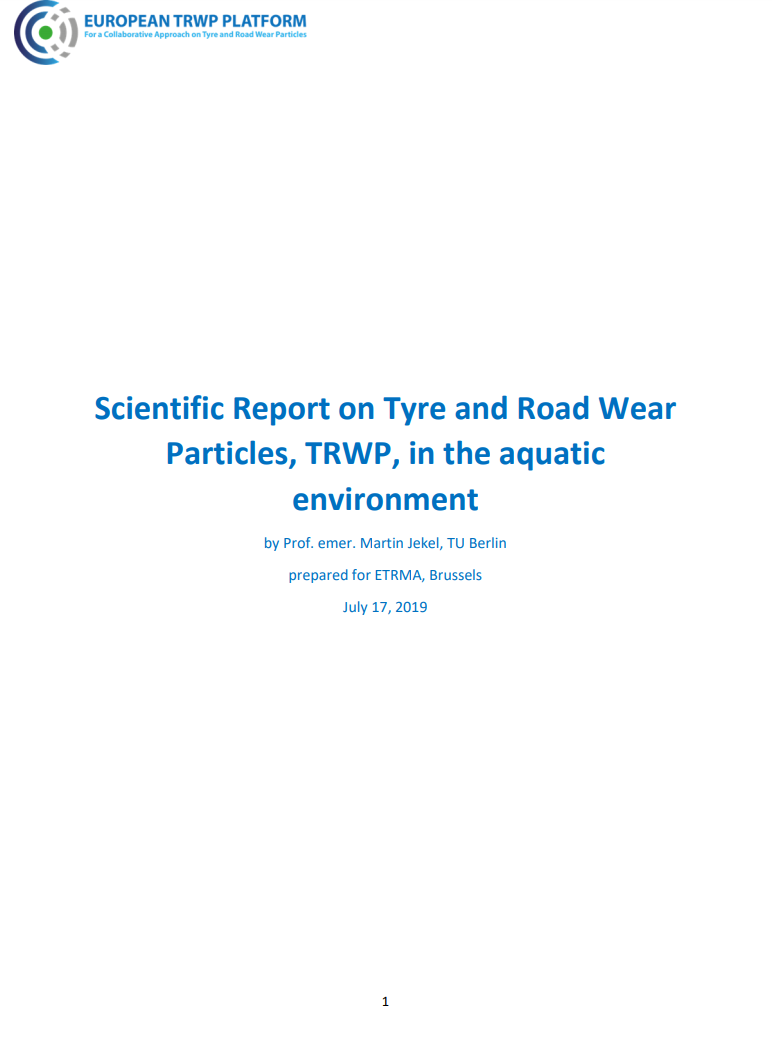ETRMA publishes two reports on tyre particulate

Multi-stakeholder platform concludes on possible mitigation options
In July 2018 the European Tyre and Rubber Manufacturers’ Association (ETRMA) initiated a multi-stakeholder roundtable, the European TRWP (Tyre and Road Wear Particles) Platform facilitated by CSR Europe to consult on the subject of tyre particulate. The Platform brought together representatives of the main organisations related to TRWP well as research institutes and EU policy makers. As the year-long collaboration has come to a conclusion, the platform has published two reports highlighting potential mitigation measures to reduce generation and transportation of TRWP as well as calling for additional research where knowledge gaps exist in an attempt to answer growing concerns about their environmental impact.
Tyre and road wear particles are an “agglomeration” of material from the tyre and the road formed during normal driving conditions from the friction between the tyre and the road, which is necessary to ensure essential grip on the road and safety.
With members stemming from government, academia, civil society and industry, the TRWP Platform sought to create an open and inclusive dialogue among all relevant stakeholders to identify the factors affecting TRWP and explore a balanced and holistic approach to address and better understand TRWP.
After one year of collaboration, two reports have been published:
The “Way Forward Report” explores the most promising ways of mitigating the environmental impact of TRWP that were jointly identified during meetings of this initiative. This includes measures to address TRWP generation and TRWP capture and removal. The report also provides recommendations and pathways for continued cross-sector collaboration.
The second publication, “Scientific Report on TRWP in the Aquatic Environment” by Professor Dr. Martin Jekel from TU Berlin, summarises the existing scientific research and knowledge gaps on TRWP from generation to freshwater systems based on the available literature, with an emphasis on recent studies, publications, reports and presentations of participants at the high-level and technical meetings of the Platform. This review also identifies several future avenues for research.
According to Professor Dr. Jekel, “The topic of TRWP is very complex and our knowledge is still very limited. We expect considerable progress will be achieved in the next years in our understanding of TRWP. Several on-going research projects will help support or reject several hypotheses or assumptions. They will contribute to the evaluation of the effects of TRWP in the environment and will be the basis for decisions on optional countermeasures.”
“We are an ambitious industry that has never turned away from its responsibilities. These new reports provide a solid basis on which to anchor our on-going work on TRWP. We are also committed to the continuation of cross-sector stakeholder collaboration on this topic in the future,” added Fazilet Cinaralp.
“As a sector, we are faced with the complex challenge of reducing the generation of tyre and road wear particles without impacting the important role tyres play in road safety and mobility. This can only be addressed by bringing all parties involved together for an open dialogue on potential solutions and collaborations across industries and public authorities,” explains Fazilet Cinaralp, secretary-general of ETRMA.



Comments